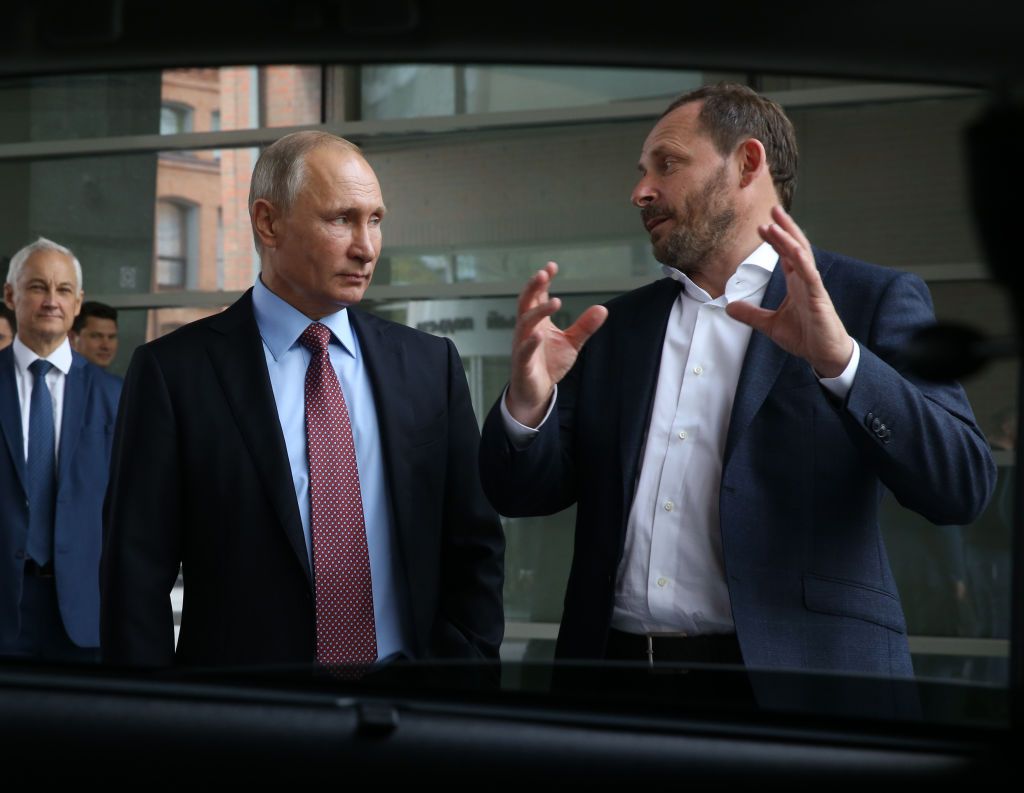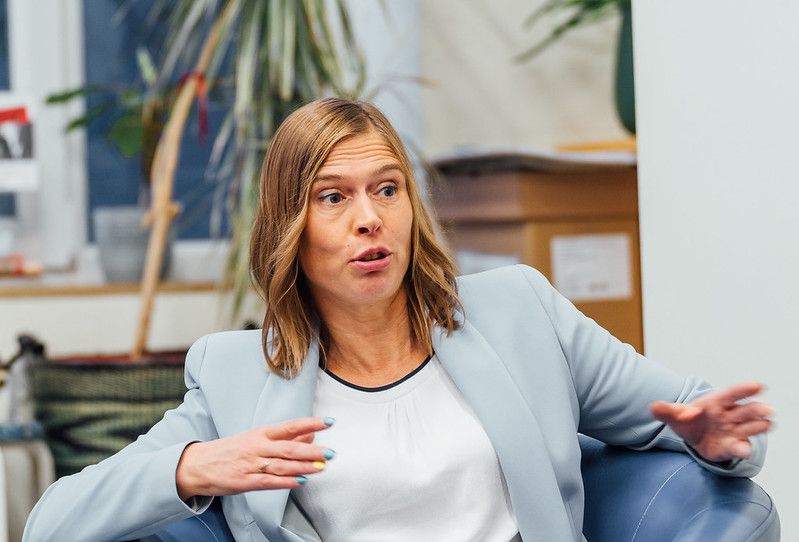Opinion: It’s time to ban Russian athletes from the 2024 Olympic Games

The International Olympic Committee (IOC) announced on Oct. 12 that it would suspend the Russian Olympic Committee (ROC) after it incorporated the regional sports organizations from four territories illegally annexed from Ukraine.
In its statement, the IOC said the ROC’s inclusion of Donetsk, Luhansk, Kherson, and Zaporizhzhia’s sports organizations, which are under the authority of Ukraine’s National Olympic Committee (NOC), constitutes a “breach of the Olympic Charter because it violates the territorial integrity of the NOC of Ukraine.”
The IOC then noted that the ROC is no longer entitled to operate as a National Olympic Committee and “cannot receive any funding from the Olympic Movement,” adding that the IOC “reserves the right to take any further decision or measure (against the ROC) depending on the development of (the) situation.”
The decision has come months after pressure from the international community on the IOC.
Since the start of Russia’s full-scale invasion of Ukraine, numerous organizations around the world have suspended Russian representation to punish it for its behavior.
For example, the International Federation of Association Football (FIFA) and the Union of European Football Associations (UEFA) suspended Russian men’s and women’s teams from participating in international football competitions in February 2022.
The Council of Europe voted to expel Russia in March 2022. Back in April 2022, the United Nations suspended Russia from the Human Rights Council and, just last week, the Russian Federation was “defeated in its bid to regain a seat” on the Human Rights Council.
Like these organizations, the IOC condemned Russia’s full-scale invasion of Ukraine, and it supports sanctions against the Russian Federation, as well as Belarus, for its illegal and unnecessary war. The IOC has also raised millions of dollars in aid for Ukraine.
But there remains an outstanding issue.
While the IOC has done all of this hard work to support Ukraine, the organization continues to state that it will allow Russian and Belarusian athletes to compete at the 2024 Summer Olympic Games.
The IOC concluded in January that “no athlete should be prevented from competing just because of their passport,” and that Russian and Belarusian athletes involved in the 2024 Games would have to compete as “neutral athletes.”
While the IOC would like to separate the political actions of the Russian government and its war in Ukraine with Russian athletes, the reality is that they are inseparable.

According to Ukrainian Foreign Affairs Minister Dmytro Kuleba, the Russian Federation won 71 medals at the 2021 Tokyo Olympic Games. Forty-five of the 71 medals won were reportedly received by athletes who are members of the Russian Army’s Central Sports Club.
In other words, many Russian men and women who competed at the Olympics were also members of the Russian military – the same organization that has committed atrocities across Ukraine over the past 21 months
Inviting Russian and Belarusian athletes to the 2024 Games risks normalizing Russia’s war in Ukraine.
Such a decision would reward Russian soldier-athletes for their participation in the war, and it would falsely imply that Russia and its citizens can wage war and commit atrocities in a neighboring country without significant repercussions.
It would also suggest that the international community is no longer fully committed to opposing the full-scale war against Ukraine.
Finally, it would send a dangerous message to other authoritarian rulers around the world that they can meddle in the affairs of their neighbors without consequence.
In other words, allowing Russian and Belarusian athletes to participate in the 2024 Games could lead to a dangerous precedent.
Fortunately, international pressure may force the IOC to change its decision. One can turn to the outcome of UEFA’s suspension of Russia from European football as a recent example.
UEFA suspended Russian men’s and women’s teams from international competitions to punish Russia for its war in February 2022.
However, it announced in September that it would partially lift this suspension, allowing the Russian under-17 men’s and women’s teams to compete, stating that “children should not be punished for actions whose responsibility lies exclusively with adults.”
UEFA’s decision was met with immediate backlash. Following the announcement, the football federations from Ukraine, England, Poland, Romania, Estonia, Latvia, Lithuania, Finland, Sweden, Norway, Iceland, Denmark, and Ireland stated they would boycott any under-17 UEFA competition that allowed Russia to participate.
In other words, one-fourth of UEFA’s member nations condemned the decision to allow Russian athletes to compete. The protests worked and, soon after, the UEFA announced that it would backtrack on its decision, stating that “Russia will not be allowed to take part in qualifying for the Under-17 European Championship.”

Given the success of the UEFA boycott, it is time for the international community to put additional pressure on the IOC.
To date, 36 countries from Asia, Europe, North America, and Oceania have protested the IOC’s decision to allow Russian and Belarusian athletes to participate in the 2024 Games. They have written letters to the IOC condemning its decision, and this coalition is considering boycotting next year’s competition.
If these countries were to bow out of the competition, the IOC would lose millions of dollars in revenue. International broadcasters would pull out, and viewership of the 2024 Games would significantly decrease.
Overall, organizations such as the Council of Europe, the United Nations, and UEFA have upheld their suspensions. Russia is not allowed to participate in these bodies until it ends its illegal and unnecessary invasion of Ukraine until Ukraine’s borders are restored, and until Ukraine is rebuilt.
The IOC should join them.
Editor's Note: The opinions expressed in the op-ed section are those of the authors and do not purport to reflect the views of the Kyiv Independent.













